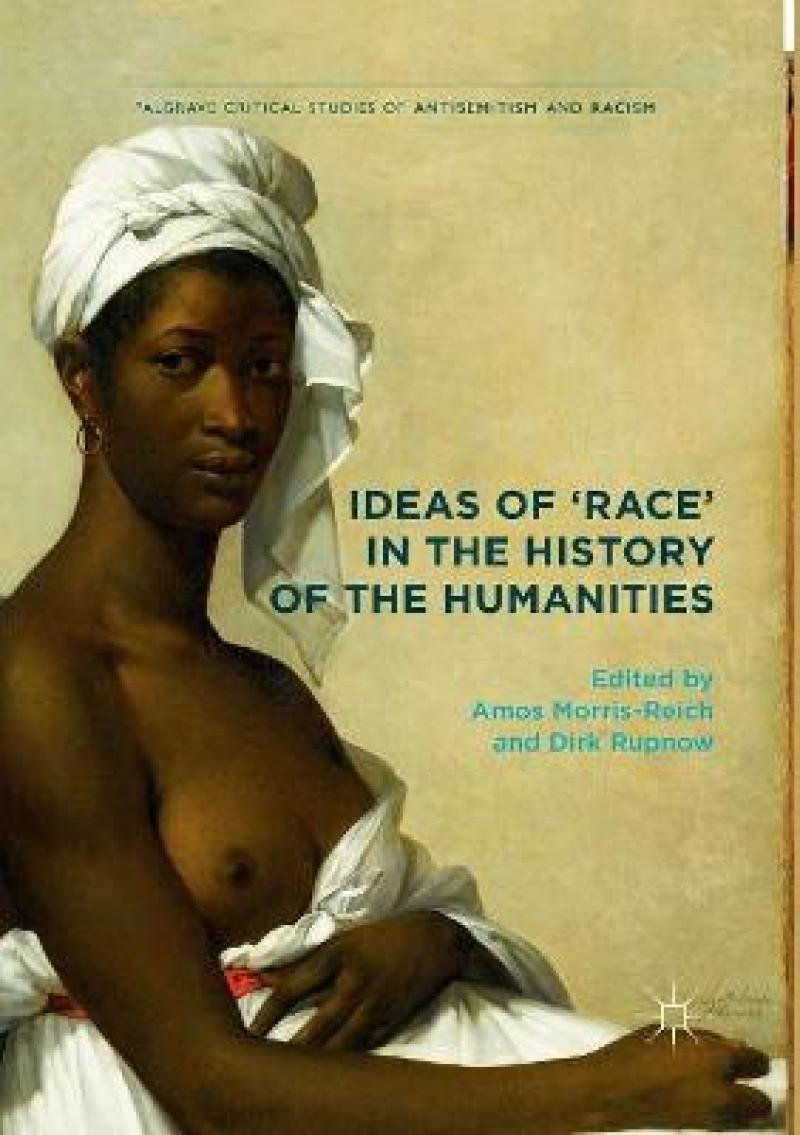This volume is concerned with the hitherto neglected role of the humanities in the histories of the idea of race. Its aim is to begin to fill in this significant lacuna. If, in the decades following World War II and the Holocaust – years that witnessed European decolonization and the African-American civil rights movement – the concept of ‘race’ slowly but surely lost its legitimacy as a cultural, political and scientific category, for much of the nineteenth and the first half of the twentieth century concepts of race enjoyed widespread currency in numerous fields of knowledge such as the history of art, history, musicology, or philosophy. Bringing together some of the most distinguished scholars in their respective fields, this is the first collective attempt to address the history of notions of race in the humanities as a whole.
Les mer
1. Introduction; Amos Morris-Reich and Dirk Rupnow.- 2. Were Early-Modern Europeans Racist?; Joan-Pau Rubiés.- 3. Formal Analysis: Art and Anthropology; Margaret Olin.- 4. Max Grunwald and the Formation of Jewish Folkloristics: Another Perspective on Race in German-Speaking Volkskunde; Dani Schrire.- 5. Racism and Anti-Semitism in German Political Economy-The Example of Carl Schmitt’s 1936 Berlin Conference “Jewry in Jurisprudence”; Nicolas Berg.- 6. Theogony as Ethnogony: Race and Religion in Friedrich Schelling's Philosophy of Mythology; George Williamson.- 7. Race and Richard Wagner; Michael Steinberg.- 8. The Concept of Race in Musicological Thought- from General Remarks to a Case Study of So- Called Gypsy Music in European Culture; Anna G. Piotrowska.- 9. On Racial Thinking and the Problem of "Oriental" Prehistory; Suzanne Marchand.- 10. "Nordics" and "Hamites": Joseph Deniker and the Rise (and Fall) of Scientific Racism; Nigel Eltringham.- 11. Phonocentrism and the Concept of Volk: The Case of Modern China; Christopher Hutton.- 12. "The Creation of a Frustrated People": Race, the Teaching of History, and South African Historiography in the Apartheid Era; Derek Charles Catsam.- 13. Afterword; Sander L. Gilman.
Les mer
This volume is concerned with the hitherto neglected role of the humanities in the histories of the idea of race. Its aim is to begin to fill in this significant lacuna. If, in the decades following World War II and the Holocaust – years that witnessed European decolonization and the African-American civil rights movement – the concept of ‘race’ slowly but surely lost its legitimacy as a cultural, political and scientific category, for much of the nineteenth and the first half of the twentieth century concepts of race enjoyed widespread currency in numerous fields of knowledge such as the history of art, history, musicology, or philosophy. Bringing together some of the most distinguished scholars in their respective fields, this is the first collective attempt to address the history of notions of race in the humanities as a whole.
Les mer
Reveals the role of the humanities in the history of the concept of 'race' Brings together some of the most prominent historians in the subject area Provides a multidisciplinary perspective with contributors from a range of disciplines and nationalities
Les mer
GPSR Compliance
The European Union's (EU) General Product Safety Regulation (GPSR) is a set of rules that requires consumer products to be safe and our obligations to ensure this.
If you have any concerns about our products you can contact us on ProductSafety@springernature.com.
In case Publisher is established outside the EU, the EU authorized representative is:
Springer Nature Customer Service Center GmbH
Europaplatz 3
69115 Heidelberg, Germany
ProductSafety@springernature.com
Les mer
Produktdetaljer
ISBN
9783319842837
Publisert
2018-08-07
Utgiver
Springer International Publishing AG
Høyde
210 mm
Bredde
148 mm
Aldersnivå
Research, P, 06
Språk
Product language
Engelsk
Format
Product format
Heftet
Biografisk notat
Amos Morris-Reich is Professor in the Department of Jewish History and Thought and Director of Bucerius Institute for the Research of Contemporary German History and Society at the University of Haifa, Israel. Past publications include The Quest for Jewish Assimilation in Modern Social Science (2008) and Race and Photography: Racial Photography as Scientific Evidence, 1876-1980 (2016).Dirk Rupnow is Professor at, and Head of, the Institute for Contemporary History at the University of Innsbruck, Austria. Previous publications include Judenforschung im Dritten Reich: Wissenschaft zwischen Politik, Propaganda und Ideologie (2011) and Vernichten und Erinnern: Spuren nationalsozialistischer Gedächtnispolitik (2005) and co-edited (with I. Roebling-Grau) ‘Holocaust’-Fiktion: Kunst jenseits der Authentizität (2015) and (together with V. Lipphardt, J. Thiel and C. Wessely) Pseudowissenschaft. Konzeptionen von Nichtwissenschaftlichkeit in der Wissenschaftsgeschichte (2008).
